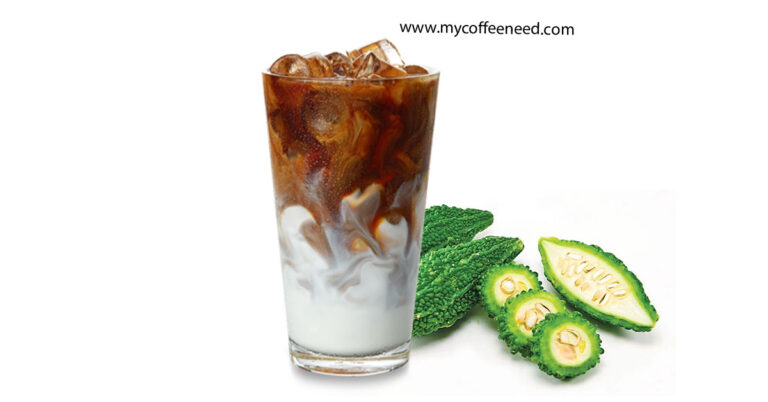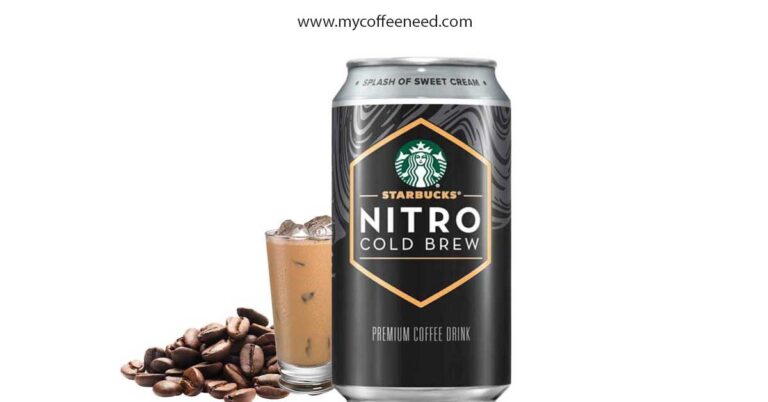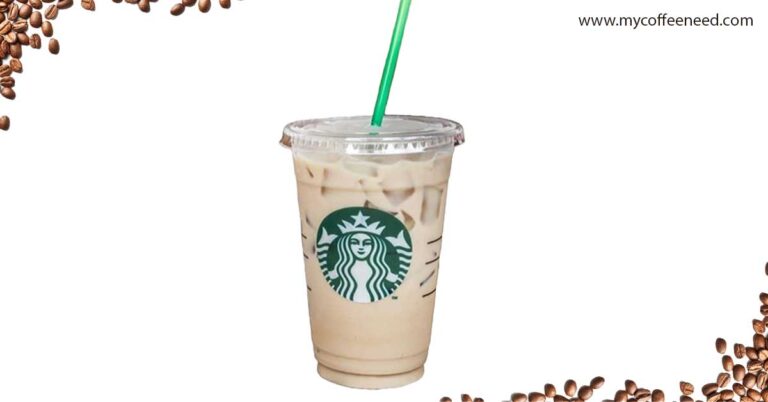Coffee For Weight Loss
Shedding those extra pounds, the quest for effective and enjoyable ways to boost your weight loss journey, especially when it comes to Coffee for weight loss, is never-ending.
If you’re a coffee lover, you’re in for a pleasant surprise. In this article, we will explore the fascinating relationship between coffee and weight loss, shedding light on the science behind it and how you can harness this potential to achieve your fitness goals. Grab your favorite brew, sit back, and discover the secret power of coffee in your weight loss regimen.
Does Coffee Help Reduce Weight?
Coffee has long been a beloved morning ritual and a source of comfort for millions of people around the world.
But did you know that your daily cup of joe might also be a secret weapon in your weight loss arsenal? Let’s dive into the science and discover how coffee can contribute to shedding those extra pounds.
The Metabolism Booster
One of the key ways coffee can aid in weight loss is by boosting your metabolism. Coffee contains caffeine, a natural stimulant that increases your heart rate and metabolic rate.
This means your body burns calories more efficiently, even at rest. Studies have shown that caffeine can enhance metabolic activity, potentially leading to greater calorie expenditure throughout the day.
Appetite Suppression
Have you ever noticed that a cup of coffee can help curb your appetite? Caffeine has been found to have appetite-suppressing effects, which can be especially helpful if you’re trying to control your calorie intake.
By reducing your feelings of hunger, coffee can help you resist the temptation to snack excessively between meals.
Enhanced Fat Burning
When you consume coffee, it triggers the release of fatty acids into your bloodstream. These fatty acids are then used as a source of energy, contributing to fat burning.
Additionally, caffeine can stimulate the breakdown of fat cells, making it easier for your body to utilize stored fat for energy.
Improved Physical Performance
If you engage in regular physical activity as part of your weight loss routine, coffee can offer a significant boost. Caffeine can enhance your endurance and stamina, allowing you to work out harder and longer.
This increased physical performance can lead to more effective calorie burning and improved weight loss results.
Antioxidant Benefits
Coffee is rich in antioxidants, which can have a positive impact on overall health. Antioxidants help protect your cells from damage and inflammation, potentially supporting a healthy weight loss journey by promoting general well-being.
While coffee can be a valuable addition to your weight loss plan, it’s essential to consume it in moderation and be mindful of added sugars and high-calorie creamers.
Additionally, individual responses to caffeine can vary, so it’s important to listen to your body and adjust your coffee intake accordingly.
Now that we’ve explored the science behind coffee and weight loss, let’s move on to how you can incorporate this knowledge into your daily routine for maximum benefits.
Best Ways to Drink Coffee for Weight Loss
Now that you know how coffee can be a valuable ally in your weight loss journey, let’s delve into the best practices for enjoying your daily cup of coffee to achieve those desired results.
1. Opt for Black Coffee
The simplest and most effective way to enjoy coffee for weight loss is by drinking it black. Avoid adding sugar, cream, or flavored syrups, as they can quickly turn a calorie-free beverage into a high-calorie treat. Black coffee retains all the benefits without the added calories.
2. Time It Right
Timing matters when it comes to coffee and weight loss. Consider having a cup of coffee about 30 minutes before your workout.
The caffeine can provide an energy boost, enhance your exercise performance, and aid in fat burning. Avoid drinking coffee too late in the day, as it may interfere with your sleep.
3. Be Mindful of Portion Size
While coffee can be a helpful tool, excessive consumption isn’t advisable. Stick to one to three cups per day to reap the benefits without overdoing it on caffeine. Too much coffee can lead to jitters, anxiety, and disrupted sleep patterns.
4. Stay Hydrated
Remember that coffee is a diuretic, which means it can lead to increased urination and potential dehydration. Counteract this effect by drinking plenty of water throughout the day to stay hydrated and support your overall health.
5. Experiment with Different Brews
Explore various coffee options, such as cold brew, pour-over, or espresso, to find the brewing method that suits your taste and preferences.
Different types of coffee may have slightly different caffeine content and flavor profiles, allowing you to enjoy variety while staying on track with your weight loss goals.
6. Monitor Your Overall Diet
While coffee can be a helpful addition to your weight loss plan, it’s essential to focus on your overall diet and lifestyle.
Combine your coffee consumption with a balanced diet rich in fruits, vegetables, lean proteins, and whole grains. Regular exercise and adequate sleep are also key components of a successful weight loss strategy.
By following these best practices for drinking coffee for weight loss, you can harness the potential of this beloved beverage to support your fitness goals.
Remember that consistency and moderation are key, and always listen to your body’s signals to ensure a healthy and sustainable approach to weight management.
Top Drinks That Can Help You Lose Weight
Coffee is a notable beverage that can aid in weight loss, there are several other drinks you can incorporate into your daily routine to further support your fitness goals.
These drinks not only offer hydration but also provide various health benefits that can contribute to shedding those extra pounds.
1. Green Tea
Green tea is renowned for its metabolism-boosting properties. It contains antioxidants called catechins, which may increase calorie expenditure and promote fat oxidation.
Sipping on green tea throughout the day can help enhance your weight loss efforts while providing a gentle caffeine boost.
2. Water
While not a traditional “drink” in the conventional sense, water is perhaps the most crucial element of any weight loss plan.
Staying hydrated is essential for overall health and can help control appetite, reduce calorie intake, and support proper digestion. Aim to drink plenty of water throughout the day to stay on track with your weight loss goals.
3. Lemon Water
Adding a squeeze of fresh lemon juice to your water can not only enhance its flavor but also provide a dose of vitamin C and antioxidants.
Some studies suggest that lemon water may help boost metabolism and reduce feelings of hunger, making it a refreshing and healthy choice for those looking to lose weight.
4. Herbal Teas
Herbal teas like peppermint, ginger, and chamomile are caffeine-free options that can support weight loss in various ways.
Peppermint tea can help curb cravings, ginger tea aids in digestion and can reduce bloating, while chamomile tea may promote relaxation and better sleep, crucial factors in weight management.
5. Apple Cider Vinegar (ACV) Drinks
Apple cider vinegar has gained popularity for its potential to support weight loss. Mixing a tablespoon of ACV with water and a touch of honey or a splash of lemon can create a tangy, low-calorie drink that may help control blood sugar levels and reduce appetite when consumed before meals.
6. Protein Shakes
Protein shakes, made with high-quality protein powder, can be a convenient and satisfying way to increase protein intake.
Protein helps you feel full and supports muscle growth, which can boost metabolism. These shakes can be an excellent meal replacement option, particularly for those on the go.
It’s important to note that while these drinks can complement your weight loss efforts, they are most effective when combined with a balanced diet and regular physical activity.
Additionally, individual responses may vary, so it’s essential to find the beverages that work best for your unique needs and preferences.
By incorporating these top weight-loss-supporting drinks into your daily routine, you can create a well-rounded approach to achieving your fitness goals while enjoying a variety of flavors and health benefits.
Which Coffee is Best for Weight Loss?
Selecting the right coffee for weight loss, a few key factors can make a difference in maximizing the benefits. Here’s what to consider when choosing the best coffee for your weight loss journey:
1. Plain, Black Coffee
The most straightforward choice for weight loss is plain, black coffee. By avoiding added sugars, creamers, and flavored syrups, you keep your coffee calorie-free while still enjoying the metabolism-boosting effects of caffeine. Opt for high-quality, freshly brewed black coffee for the best results.
2. Single-Origin Coffees
Single-origin coffees are known for their distinct flavors and unique profiles. While they may not directly impact weight loss, the enjoyment of a carefully brewed single-origin coffee can help you savor the experience and reduce the desire for high-calorie snacks or desserts.
3. Organic Coffee
Organic coffee is grown without synthetic pesticides or herbicides. Choosing organic coffee ensures that you’re not exposing yourself to potentially harmful chemicals, and it aligns with a health-conscious approach to weight loss.
4. High-Quality Coffee Beans
Investing in high-quality coffee beans can make a noticeable difference in flavor and potential weight loss benefits.
Look for Arabica beans, which tend to have a smoother, less bitter taste than Robusta beans. Freshly roasted beans also retain more of their natural flavors and aroma.
5. Cold Brew Coffee
Cold brew coffee is brewed with cold water over an extended period, resulting in a smoother and less acidic taste. It can be an excellent option for those who find regular coffee too harsh on their stomach. Additionally, cold brew can be enjoyed black, making it a low-calorie choice for weight loss.
6. Caffeine Content
If you prefer coffee with a higher caffeine content, consider espresso or darker roasts. These varieties typically contain more caffeine, which can provide a more significant energy boost and potentially enhance metabolism and fat burning.
7. Quality Water
Don’t overlook the importance of water quality when brewing coffee. Use clean, filtered water to make your coffee, as impurities or minerals in tap water can affect the taste of your brew. A great-tasting coffee can be more satisfying, reducing the urge to snack unnecessarily.
Ultimately, the best coffee for weight loss is one that you enjoy and can incorporate into your daily routine. While certain types of coffee may offer additional health benefits or flavor profiles, the most crucial factor is to avoid excessive calories from additives and savor the natural benefits of coffee to support your weight loss goals.
What Is the Right Time to Drink Coffee for Weight Loss?
The timing of your coffee consumption can play a significant role in optimizing its weight loss benefits. Here’s a detailed breakdown of the best times to enjoy your coffee for maximum impact on your weight loss journey:
1. Before Your Workout
Drinking coffee about 30 minutes before your workout can be highly effective. The caffeine in coffee acts as a natural stimulant, increasing your heart rate and alertness.
This pre-workout coffee can boost your energy levels, enhance your exercise performance, and contribute to greater calorie burning during your workout. It also helps mobilize fat stores, making them available for energy use.
2. In the Morning
Many people naturally reach for a cup of coffee in the morning to kickstart their day. This morning routine can have weight loss benefits by jumpstarting your metabolism and curbing your appetite, helping you avoid overeating during breakfast or mid-morning snacks. A black coffee without added sugar or high-calorie creamers is ideal for this purpose.
3. As an Appetite Suppressant
If you tend to experience midday or late-afternoon cravings, a cup of coffee can serve as an appetite suppressant.
The caffeine in coffee can help control your appetite, making it easier to resist the temptation of unhealthy snacks. This approach can be especially useful if you practice intermittent fasting or have set meal times.
4. Avoid Coffee Late in the Day
Avoid drinking coffee too late in the day, especially in the evening. The stimulating effects of caffeine can interfere with your sleep, which is crucial for weight management.
Poor sleep can disrupt your body’s hunger hormones, leading to increased cravings and potential weight gain. To ensure a good night’s sleep, it’s generally best to cut off caffeine consumption by early afternoon.
5. Listen to Your Body
Individual responses to caffeine can vary. Some people may be more sensitive to its effects, experiencing jitters or sleep disturbances even with morning coffee.
It’s essential to listen to your body and adjust your coffee consumption accordingly. If you find that coffee negatively affects your sleep or well-being, consider reducing your intake or switching to decaffeinated coffee in the afternoon and evening.
In conclusion, the right time to drink coffee for weight loss depends on your daily routine and individual preferences. Generally, consuming coffee before your workout or in the morning can help boost metabolism and control appetite.
However, it’s equally crucial to be mindful of your caffeine intake and avoid coffee in the late afternoon and evening to ensure restful sleep and overall well-being. Consistency and moderation are key to harnessing the weight loss potential of coffee.
Is Milk Coffee Bad for Weight Loss?
Milk coffee, a popular choice for many coffee enthusiasts, is a topic of discussion when it comes to its impact on weight loss. Let’s explore the pros and cons to determine whether milk coffee is a suitable option for those looking to shed pounds.
Pros of Milk Coffee
1. Satiety
Milk coffee tends to be more filling than black coffee. The combination of coffee and milk can create a creamy and satisfying beverage that helps stave off hunger, potentially reducing the urge to snack between meals.
2. Nutritional Value
Milk adds essential nutrients to your coffee, such as calcium and protein. These nutrients are important for overall health and can contribute to a balanced diet, which is essential for successful weight loss.
Cons of Milk Coffee
1. Calories
Milk coffee can be calorie-dense, depending on the type and amount of milk used. Whole milk and flavored creamers can significantly increase the calorie content of your coffee. Excessive calorie consumption can hinder weight loss efforts if not accounted for within your daily caloric intake.
2. Added Sugars
Many people enjoy adding sugar to their milk coffee for extra sweetness. Unfortunately, added sugars can contribute to weight gain if consumed in excess.
Sweetened coffee beverages, such as lattes or mochas, can contain a substantial amount of sugar, making them less suitable for those focused on weight loss.
3. Potential Overconsumption
Some individuals may find that milk coffee is easier to overconsume due to its pleasing taste and texture. Consuming multiple cups of sweetened or high-calorie milk coffee throughout the day can lead to an unintentional increase in calorie intake.
Choosing the Right Milk Coffee for Weight Loss
If you enjoy milk coffee and want to include it in your weight loss plan, there are strategies to make it more weight-loss-friendly:
1. Choose Low-Fat Milk
Opt for low-fat or skim milk instead of whole milk to reduce the calorie content while still benefiting from the nutritional value of milk.
2. Limit Added Sugars
Minimize or eliminate added sugars in your coffee. Consider using natural sweeteners like stevia or using unsweetened flavorings to add flavor without the extra calories.
3. Watch Portion Sizes
Be mindful of portion sizes. Limit the amount of milk you add to your coffee, and opt for smaller cup sizes to control calorie intake.
In summary, milk coffee can be enjoyed as part of a balanced diet for weight loss if consumed in moderation and with attention to its calorie content and added sugars.
Choosing low-fat milk and minimizing added sugars can make milk coffee a more weight-loss-friendly option. Ultimately, the key is to strike a balance that aligns with your overall calorie goals and dietary preferences.
Making Coffee Work for Your Weight Loss Journey
Throughout this comprehensive guide, we’ve explored the multifaceted relationship between coffee and weight loss, as well as the various aspects surrounding coffee consumption. Here are the key takeaways to help you make coffee work effectively for your weight loss goals:
1. Coffee as a Weight Loss Ally
Coffee, when consumed mindfully and in moderation, can be a valuable ally in your weight loss journey. Its caffeine content can boost metabolism, suppress appetite, and promote fat burning, making it a powerful tool in your arsenal.
2. Best Practices for Coffee Consumption
Opt for plain, black coffee to keep it calorie-free and maximize its benefits. Consider enjoying it in the morning, before your workout, or as an appetite suppressant when cravings strike. However, be cautious about consuming coffee too late in the day, as it can interfere with sleep.
3. Exploring Other Weight-Loss-Supporting Drinks
While coffee offers its benefits, there are other beverages that can complement your weight loss efforts. Green tea, water, herbal teas, and protein shakes are just a few options to consider, each with its unique advantages.
4. Selecting the Right Coffee
The choice of coffee beans and brewing methods can impact your coffee’s flavor and potential benefits. Single-origin, organic, and high-quality coffee beans can enhance your coffee experience. Additionally, consider cold brew coffee for a smoother taste.
5. Milk Coffee Considerations
If you prefer milk coffee, choose low-fat milk and avoid excessive added sugars to make it more weight-loss-friendly. While milk coffee can be satiating, it’s essential to manage portion sizes and sugar content.
In conclusion, coffee can be a valuable addition to your weight loss plan when enjoyed responsibly. By following best practices, selecting the right coffee, and being mindful of what you add to it, you can harness its potential to support your fitness goals.
Remember that a holistic approach to weight management, including a balanced diet and regular exercise, is essential for long-term success. Listen to your body, stay consistent, and enjoy your coffee as part of a healthy and sustainable weight loss journey.







